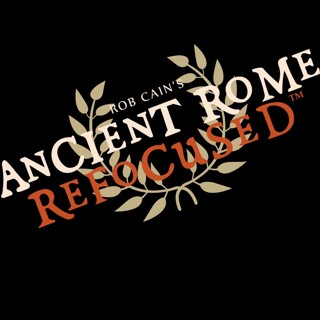Om episode
Got something to share on the Ancient World? Call the comment line at: 1-508-864-6722. Rob Cain interviews Helen King on Medicine in the Ancient World. Helen King is a British classical scholar and advocate for the medical humanities. She is Professor Emerita of Classical Studies at the Open University. She was previously Professor of the History of Classical Medicine and Head of the Department of Classics at the University of Reading. Rob calls her at home to talk about medicine in the ancient world, what makes a good legio medicus, and the women physicians of the Ancient World. Also on the show is Matthew Lee Embleton, he joins us to talk about the strange ancient medicine Absinthe. It is now a popular drink nicknamed, "The Green Fairy". He provides us with another hip pocket lecture on the subject of Absinthe. This drink is a anise-flavored spirit, reminding some of licorice. It is colored 'green' with a very high alcohol content. Historical literature calls it the 'green fairy'. If you desire to read more on 'the green fairy' check out Embleton's book" A Brief History of Absinthe: History, Medicine, Art, Poetry and Ritual on this definite 'bohemian' drink consumed by the likes of Hemingway, Toulouse-Lautrec, and Lewis Carroll of Alice in Wonderland fame. In the ancient book De Rerum Natura , Lucretius writes about the drink containing wormwood and was given as a medicine to children with the glass dipped in honey to make it palatable for the young. Coming to the U.S. in January 2025. Journey into the complex medical and religious history of women's bodies from classical Greece to the modern day 'Illuminating, thoughtful and scholarly' FINANCIAL TIMES 'Mind-blowing, fascinating stuff' BBC WOMAN'S HOUR 'Delightful, timely and critical' Cat Bohannon, author of Eve 'With unrivaled expertise and a wealth of classical and contemporary detail, the author weaves historical knowledge of medicine, anatomy, literature, art and religion into a narrative that surprises, informs, excites and frequently amuses' Adrian Thatcher, author of Vile Bodies Throughout history, religious scholars, medical men and - occasionally - women themselves, have moulded thought on what 'makes' a woman. She has been called the weaker sex, the fairer sex, the purer sex, among many other monikers. Often, she has been defined simply as 'Not A Man'. Today, we are more aware than ever of the complex relationship between our bodies and our identities. But contrary to what some may believe, what makes a woman is a question that has always been open-ended. Immaculate Forms examines all the ways in which medicine and religion have played a gatekeeping role over women's organs. It explores how the womb was seen as both the most miraculous organ in the body and as a sewer; uncovers breasts' legacies as maternal or sexual organs - or both; probes the mystery of the disappearing hymen, and asks, did the clitoris need to be discovered at all?
